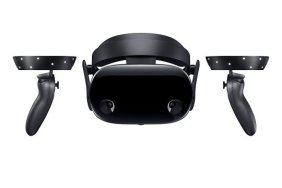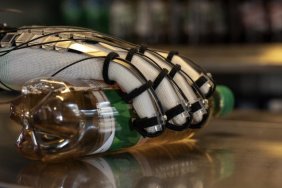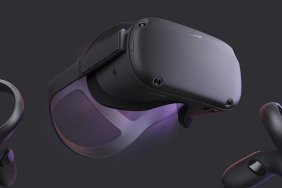Oculus founder Palmer Luckey has responded to criticisms regarding the pricing of the Oculus Rift virtual reality headset, saying that the furor surrounding its $599 US price tag is a result of miscommunication.
In a Reddit AMA (Ask Me Anything) session, Luckey responded to a question from a user who raised the issue of the Oculus CEO previously stating that the headset’s pricing would be “in the ballpark” of $350, something which we now know to not be true. Luckey replied: “I handled the messaging poorly. Earlier last year, we started officially messaging that the Rift and Recommended spec PC would cost roughly $1500. That was around the time we committed to the path of prioritizing quality over cost, trying to make the best VR headset possible with current technology.
“Many outlets picked the story up as “Rift will cost $1500!”, which was honestly a good thing – the vast majority of consumers (and even gamers!) don’t have a PC anywhere close to the rec. spec, and many people were confused enough to think the Rift was a standalone device. For that vast majority of people, $1500 is the all-in cost of owning Rift. The biggest portion of their cost is the PC, not the Rift itself.”
He continued: “For gamers that already have high end GPUs, the equation is obviously different. In a September interview, during the Oculus Connect developer conference, I made the infamous “roughly in that $350 ballpark, but it will cost more than that” quote. As an explanation, not an excuse: during that time, many outlets were repeating the “Rift is $1500!” line, and I was frustrated by how many people thought that was the price of the headset itself.
“My answer was ill-prepared, and mentally, I was contrasting $349 with $1500, not our internal estimate that hovered close to $599 – that is why I said it was in roughly the same ballpark. Later on, I tried to get across that the Rift would cost more than many expected, in the past two weeks particularly. There are a lot of reasons we did not do a better job of prepping people who already have high end GPUs, legal, financial, competitive, and otherwise, but to be perfectly honest, our biggest failing was assuming we had been clear enough about setting expectations.
“Another problem is that people looked at the much less advanced technology in DK2 for $350 and assumed the consumer Rift would cost a similar amount, an assumption that myself (and Oculus) did not do a good job of fixing. I apologize.”

Luckey also spoke of how Oculus is not going to turn a profit on the Rift, adding: “To be perfectly clear, we don’t make money on the Rift. The Xbox controller costs us almost nothing to bundle, and people can easily resell it for profit. A lot of people wish we would sell a bundle without “useless extras” like high-end audio, a carrying case, the bundled games, etc, but those just don’t significantly impact the cost.
“The core technology in the Rift is the main driver – two built-for-VR OLED displays with very high refresh rate and pixel density, a very precise tracking system, mechanical adjustment systems that must be lightweight, durable, and precise, and cutting-edge optics that are more complex to manufacture than many high end DSLR lenses. It is expensive, but for the $599 you spend, you get a lot more than spending $599 on pretty much any other consumer electronics devices – phones that cost $599 cost a fraction of that to make, same with mid-range TVs that cost $599. There are a lot of mainstream devices in that price-range, so as you have said, our failing was in communication, not just price.”
The pricing of the Oculus Rift led to widespread criticism online, with many complaining that its $599 price tag made it out of their reach. This claim was even more prevalent among those who were excited for the Rift but who live outside of the US, as conversion rates mean that they would be forced to pay an even higher price for the device. While initial pre-order sales have been impressive, with the headset selling out within 14 minutes, it remains to be seen how it will perform when it officially goes on sale later this year.








